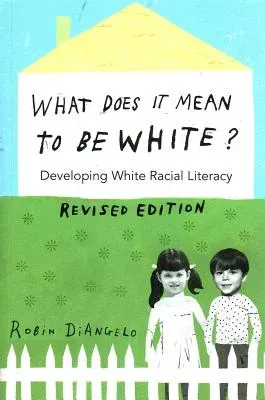Robin Diangelo
(Author)What Does It Mean to Be White?: Developing White Racial Literacy - Revised Edition (Revised)Paperback - Revised, 15 June 2016

Qty
1
Turbo
Ships in 2 - 3 days
Only 3 left
Free Delivery
Cash on Delivery
15 Days
Free Returns
Secure Checkout

Part of Series
Counterpoints
Part of Series
Counterpoints: Studies in the Postmodern Theory of Education
Print Length
371 pages
Language
English
Publisher
Peter Lang Inc., International Academic Publishers
Date Published
15 Jun 2016
ISBN-10
1433131102
ISBN-13
9781433131103
Description
Product Details
Author:
Book Edition:
Revised
Book Format:
Paperback
Country of Origin:
US
Date Published:
15 June 2016
Dimensions:
22.61 x
15.24 x
2.29 cm
ISBN-10:
1433131102
ISBN-13:
9781433131103
Language:
English
Location:
New York
Pages:
371
Weight:
521.63 gm